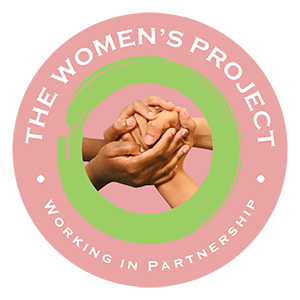
The Women’s Project is a community whose collective work serves as an alternative to pre-trial detention and incarceration. We marry legal advocacy, education and service provision to transform the existing culture in our criminal courts and permanently decrease the number of women detained in our City jails and State prisons. We provide holistic, integrative, culturally competent and person-centered services to assist women in returning to court and participating in their defense.
We are a community of shared expertise and experience. We believe in the power of individual agency and collective engagement. Women come to our space to learn, to grow, and to gather support. We aim to create the space and stop the noise that often prevents women from finding their individual power—the power that will help them to live the lives they want and make their dreams real, no matter what challenges await.
The Women’s Project is part of a larger partnership with defender offices and District Attorneys in Manhattan, Brooklyn and the Bronx. We have strong relationships with numerous community-based organizations throughout the city to ensure that holistic services are fully synchronized.
Working in Partnership
The Project’s integrated team of social workers, a community outreach specialist, an attorney, and a social work practice expert work closely with defenders and district attorneys to engineer a path to release. We seek to bridge systems and forge increased communication while preserving procedural rights. Referrals can only be made by defense attorneys and, with all permissions secured, psychosocial information is shared to enhance advocacy and ensure truly trauma-informed service provision from the outset.
District Attorneys commit to reviewing individualized plans and renewed bail applications without posing procedural impediments. Information is shared with partners quarterly and project leadership facilitates discussions to improve service delivery and impact the culture of our criminal courts.
Holistic Service and Advocacy
Our team offers clinically informed, culturally relevant, person-centered support from detention through release, meeting women the moment they step out of the City jail and remaining a support through conclusion of the criminal case and beyond.
Women held in New York City jails struggle with a range of barriers which often include unmet mental and physical health needs, substance use, unsafe living conditions, poverty, and the residual effects of significant trauma. The collateral consequences of arrest and detention frequently include loss of housing, interference with employment and/or education and the destruction of the family unit.
Through internal resources and strong external partnerships, our Project team aligns fragmented services and systems, repairing pathways for women with significant needs. We provide clinically-informed support in those places where women need it the most – court rooms, clinics, jails, HRA offices, etc. – fortifying women as they navigate trauma-inducing impediments to care.
Each member of the Project team is trained in advocacy. In addition to using these skills to enhance quality of care, team members assist in identifying unaddressed legal issues and firmly connect participants to attorneys to combat the destabilizing consequences of criminal legal system involvement.
Our Wellness and Self-Advocacy Focus
When joining the community, each woman makes a commitment to take care of herself and we collectively commit to care for one another. Every individualized plan includes a firm connection to primary and, if needed, specialized healthcare with a provider of choice, to improve health outcomes and decrease emergency department visits.
In addition to clinically informed individual support and care coordination, we offer weekly groups and workshops structured to develop the eight interdependent dimensions of wellness and to sharpen self-advocacy skills. To enhance each woman’s individual network and our collective network as a community, we invite other community-based organizations into our space to offer workshops, thus furthering the independence of each participant.
Our Stated Economic Stability Goals
With her assigned social worker, each woman creates an economic stability plan which includes a pathway to transitional/permanent employment, education, increased financial literacy, and/or monthly financial planning.
Our Responsive Community Approach
The Project strives to create and foster an equitable space that is responsive to the needs of participants and appreciative of the historical inequities that impact our community members every day. Participants provide feedback and guidance for group programming content, Project publications, and policy considerations. We employ strengths-based, community-enhancing language in all the spaces we occupy.
Our Commitment to Restorative Practices and Equitable Space
Project team members are trained in restorative and transformative practices that are healing centered. We recognize that interventions traditionally mandated for those with criminal legal system involvement (i.e. Cognitive Behavioral Therapy) are ineffective for those with serious trauma histories without the inclusion of psychodynamic approaches aimed at healing.
Through weekly staff supervision which includes both task-management oversight and intensive processing, our team members are guided in consistently reflecting on how their personal identities might influence their work and checking for potential biases. In other words, as a staff we bring who we are to the work while not allowing ourselves to get in the way.
Our Creative Components
The Project uses art, music, literature, and writing to further enhance community and promote well-being. Every six weeks, we meet for a book club discussion facilitated by the New York Public Library. Community members select each title and books are sent to members currently detained at Rikers and incarcerated in upstate facilities so that they may lead discussions with other incarcerated women.
Each month we deliver a newsletter to our community members to keep them connected through incarceration and the currently required social distancing. Each quarter we publish a collection of writing by community members and staff. It is edited by our Zine Team, led by participants, and sent to every community member, including incarcerated women.
Our Push for Lasting Change
From promoting positive language to enhancing essential communication among partners to advocating for changes in how we measure impact, the Project is dedicated to making a better space for women. Project participants and leadership engage in campaigns and advisory boards to further elevate the voice of our community.